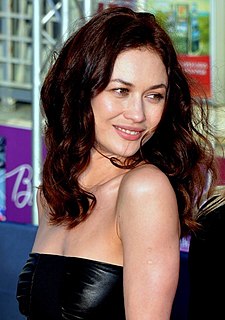A Quote by Steve Erickson
I'm not sure there's a difference between books that affected the way I see the world and books that influenced me as a writer.
Related Quotes
Only idiots or snobs ever really thought less of 'genre books' of course. There are stupid books and there are smart books. There are well-written books and badly written books. There are fun books and boring books. All of these distinctions are vastly more important than the distinction between the literary and the non-literary.
When I first decided I wanted to be a writer, when I was 10, 11 years old, the books that I loved obviously and openly fit that description: They came with maps and glossaries and timelines - books like Lord Of The Rings, Dune, The Chronicles Of Narnia. I imagined that's what being a writer was: You invented a world, and you did it in a very detailed way, and you told stories that were set in that world.
That's really the essence of what any fiction writer does. Some of it is research-based, but most of it is a really long-term, imaginative, empathetic effort to see the world the way someone whose experiences remote from yours might see it. Not every writer works that way; some writers make a wonderful career out of writing books that adhere very closely to how they view the world. The further I go with this, the more interested I get in trying to imagine my way into other perspectives that at first seem foreign to me.
One summer I was homeless in L.A., when I was about fifteen, and I used to go to the library to get books. I would have books in abandoned cars, in the seats, cubby holes on the L.A. River, just to have books wherever I could keep them, I just loved to have books. And that really helped me. I didn't realize it was going to be my destiny; I didn't know I was going to be a writer.
One wouldn't want to say that what makes a good writer is the number of books that the writer wrote because you could write a whole number of bad books. Books that don't work, mediocre books, or there's a whole bunch of people in the pulp tradition who have done that. They just wrote... and actually they didn't write a whole bunch of books, they just wrote one book many times.
I like to be aware of a book as a piece of writing, and aware of its structure as a product of mind, and yet I want to be able to see the represented world through it. I admire artists who succeed in dividing my attention more or less evenly between the world of their books and the art of their books . . . so that a reader may study the work with pleasure as well as the world that it describes.






































